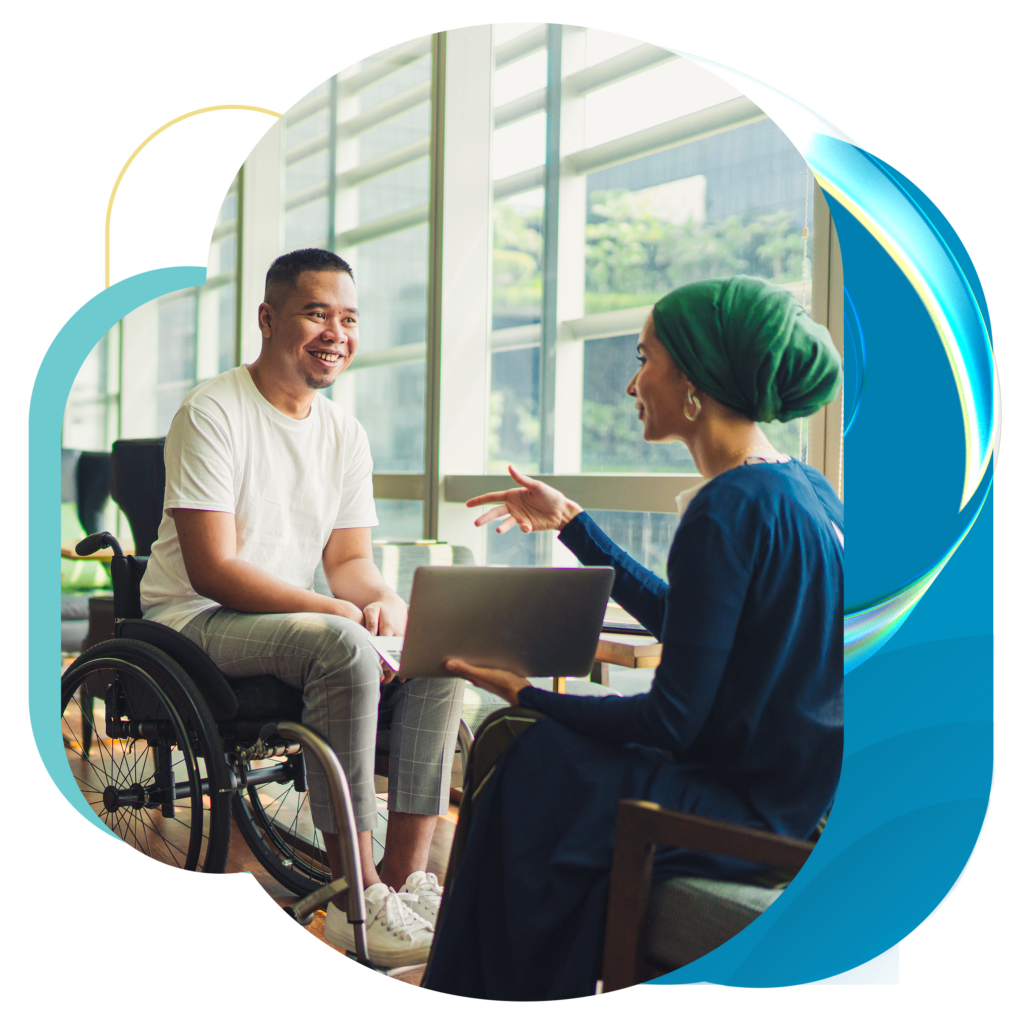Increasing DEI Intelligence (DEIQ) through Reciprocal Diversity Mentoring

The Challenge: Disrupting the status quo
Client efforts to accelerate diversity of race and gender in the top ranks had previously resulted in modest improvement, predominantly for white women, while promotions for women and men of color lagged noticeably.
The organization had identified “Values Differences” as a core leadership competency, yet the employee experience was inconsistently prioritized across departments. Diversity Equity and Inclusion (DEI) initiatives were seen as one-offs, getting little traction.
Our Approach: Create a powerful learning experience that outlives the program
Following a series of stakeholder interviews and strategy sessions that clarified the overall strategic intent of the organization, we applied design thinking to the concept of a mentoring program in which all participants were invited to explore their work identities, responsibilities, assumptions and aspirations through a DEI lens.
Core frameworks included:
- Intercultural Development Inventory
- DiSC for self- and other-awareness

The Impact: Mindset shifts with positive ripple effects throughout the organization
- Individual contributors experienced an energizing sense of authenticity, an unexpected and heightened sense of belonging, or being seen, heard, and valued
- Some senior executives discovered a deeper understanding of how their assumptions and view of DEI as someone else’s issue severely limits not only the growth and development of others but stagnates their very own development and that of the organization, minimizing creativity, innovation and productivity, while others embraced the opportunity to share/expose that their. trek to senior leadership had a different set of challenges and obstacles
- Emerging from the experience is a powerful community committed to continuing to grow and share, committed to taking information learned back to their teams and functional areas, ultimately impacting organizational strategy and goals
What set the tone for this program was at the very beginning when you dubbed it as pairings of co-mentors. I wasn’t the mentor and the other the mentee. ‘Co-mentor’ says to me we are equal partners in this—I’m going to learn as much as I’m giving.
Assistant Vice President

